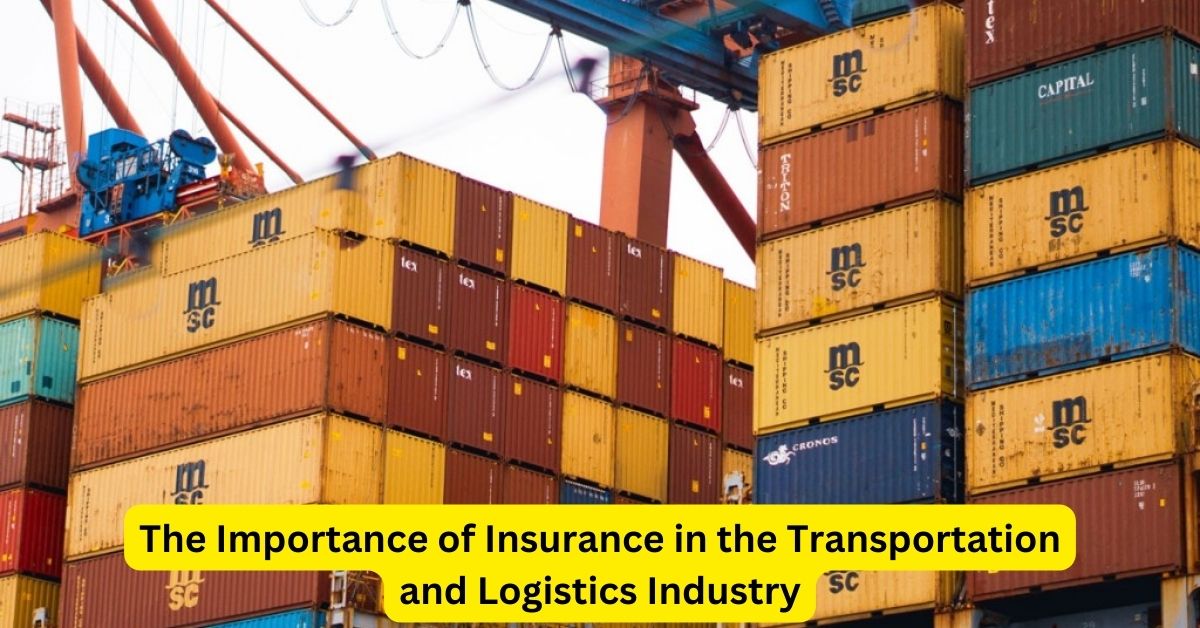The transportation and logistics industry is the backbone of global trade, responsible for the movement of goods and services across borders and regions. This sector encompasses a wide range of activities, including shipping, freight forwarding, warehousing, and distribution. With the complexity and scale of operations involved, the industry faces numerous risks and challenges that can have significant financial implications. This is where insurance plays a crucial role in safeguarding businesses against potential losses and ensuring smooth operations.
Understanding the Risks in Transportation and Logistics
The transportation and logistics industry is inherently fraught with risks. These can range from damage or loss of cargo during transit to accidents involving vehicles and personnel. Natural disasters, theft, and vandalism are also prevalent threats. Additionally, delays in shipping can lead to contractual penalties, impacting relationships with clients and damaging a company’s reputation. The recent surge in cyberattacks also poses a risk to logistics operations, with hackers targeting supply chain systems to disrupt services or steal sensitive data.
For logistics companies, managing these risks is not just about minimizing financial losses but also about maintaining customer trust and ensuring compliance with legal and regulatory requirements. Failure to adequately protect against these risks can lead to significant financial setbacks and long-term damage to a company’s brand and operational capacity.
Types of Insurance Coverage for Transportation and Logistics
Given the varied nature of risks involved, insurance coverage for the transportation and logistics industry is multifaceted. Here are some key types of insurance policies that businesses should consider:
- Cargo Insurance: This policy covers the loss or damage of goods during transit. It ensures that businesses are compensated for the value of the goods in case of unforeseen events such as accidents, theft, or natural disasters. Cargo insurance is essential for protecting the financial interests of both logistics companies and their clients.
- Liability Insurance: This includes several types of coverage, such as general liability insurance, which protects against claims of bodily injury or property damage caused by logistics operations. Additionally, professional liability insurance covers claims related to errors or omissions in logistics services, which can result in financial losses for clients.
- Commercial Vehicle Insurance: Essential for companies that operate fleets of vehicles, this insurance covers damages resulting from accidents, theft, or vandalism. It also provides protection against third-party claims in case of accidents involving company vehicles.
- Warehouse Insurance: Warehousing is a critical component of logistics, and protecting these facilities against risks like fire, theft, or natural disasters is essential. Warehouse insurance covers the physical assets stored within the facility, providing financial protection against potential losses.
- Cyber Insurance: As the industry increasingly relies on digital platforms, cyber insurance has become vital. It covers losses related to data breaches, cyberattacks, and other digital threats, helping companies mitigate the financial impact of such incidents.
Conclusion
Insurance is a vital component of risk management in the transportation and logistics industry. By providing financial protection against a wide range of potential threats, it enables businesses to operate with confidence and resilience. As the industry continues to evolve and face new challenges, having comprehensive insurance coverage is more important than ever, ensuring that companies can navigate the complexities of global trade while safeguarding their interests.

